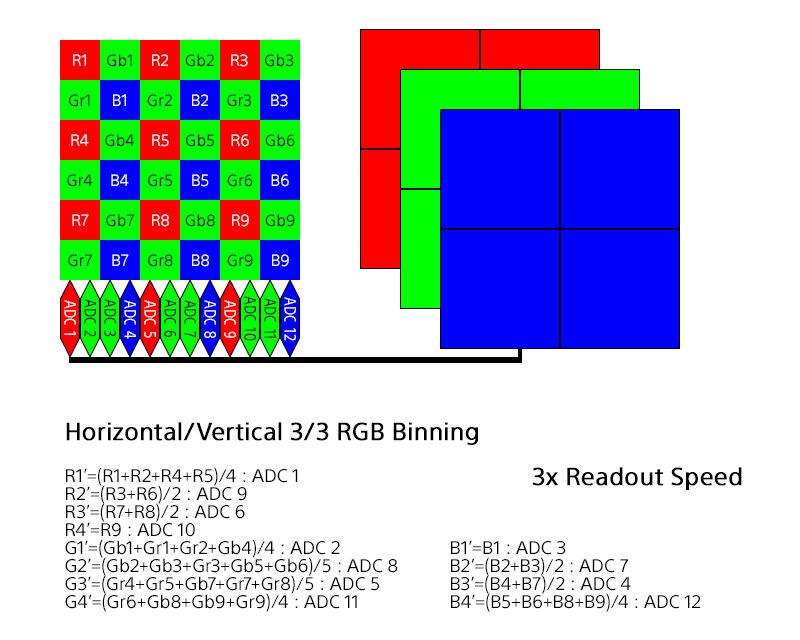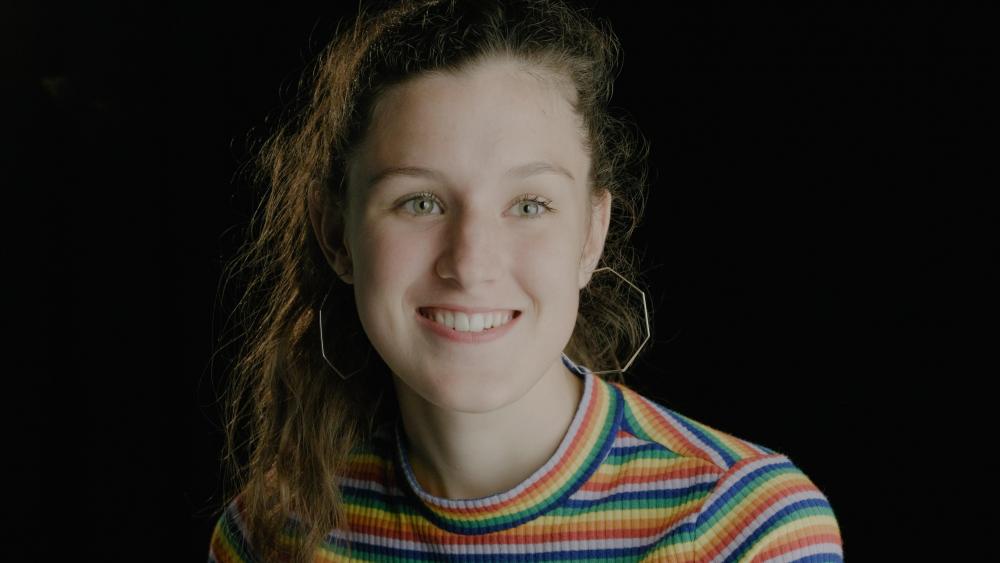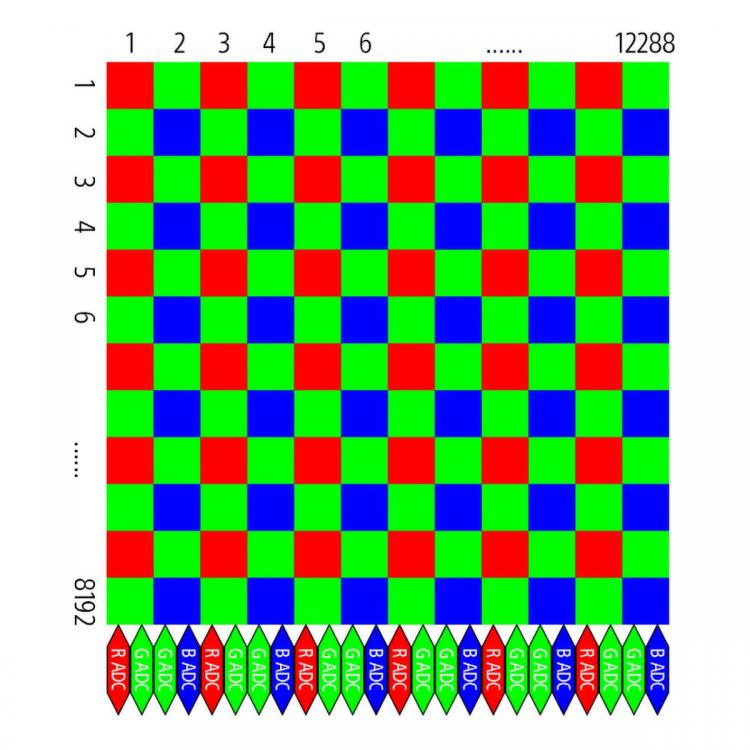
androidlad
Members-
Posts
1,215 -
Joined
-
Last visited
Content Type
Profiles
Forums
Articles
Everything posted by androidlad
-
Sony Semicon develops 100MP FF sensor with 6K video
androidlad replied to androidlad's topic in Cameras
-
Until we have variable curvature sensor, curved sensor at this size will largely be limited to industrial/scientific use as one curvature has to match a specific focal length.
-
-
Interesting they've now changed the wording:
-
2 ADC readout isn't a patent. The Fairchild sensor in URSA 4.6K uses dual 11bit ADC readout for a claimed 15EV DR. But DOL HDR is a Sony patent though, each ADC readout has different exposure with 0.1ms interval. The biggest drawback of this readout mode is rolling shutter time will double.
-
ProRes RAW only works with Bayer sensor. X-Trans RAW stills are already problematic, I can't imagine how disastrous it would be in video.
-
The sensor itself is not capable of 4K 120P. Unlike the original E2, this uses a stills-oriented sensor.
-
With 14bit ADC, the actual usable DR won’t be 14EV, you just get very clean blacks that get you nice numbers shooting charts. This is one of the reasons Fuji never went with 16bit on XT3 and GFX100. But if they could properly implement DOL HDR mode on this IMX571 sensor with 2 ADC readout, it would have great potential.
-
P20 Pro users: Turn down the horrendous sharpening please Huawei!! Huawei: Turn down for what?
-
Thanks for uploading the files. They all exhibit pronounced "water colour" effect. When viewed at small to medium size, they look clean but if you view 100% or zoom in further, there's very little fine detail and texture, grain is almost non-existent (not in a good way). I suspect it's the combination of S1's internal noise reduction, and 72Mbps H.265 compression. We all know H.265 gets a large portion of its efficiency gain by reducing high frequency details. Remember, GoPro shoots 4K at 78Mbps H.265.
-
Using 18% grey card and false color to set exposure
androidlad replied to MeanRevert's topic in Cameras
It depends on what picture profile/gamma curve you use. For example, F-log maps 18% grey to 46IRE. Also at times you may want to deviate from the guidelines, especially in high contrast scenes, typically you'd underexpose a bit for better highlight detail retention. -
1/45s is 22ms.
-
Sony Semicon develops 100MP FF sensor with 6K video
androidlad replied to androidlad's topic in Cameras
Yeah there's a 61MP 3.76um FF in the works. 100MP will be the cap for Sony FF sensor as Sony claims that their FF lenses "are designed to resolve 100MP". -
Sony Semicon develops 100MP FF sensor with 6K video
androidlad replied to androidlad's topic in Cameras
It's a sensor designed for stills camera with video capability, and the key video spec is 4K RGB 444 with 3x3 colour-aware binning, nothing is thrown away. -
Sony Semicon develops 100MP FF sensor with 6K video
androidlad replied to androidlad's topic in Cameras
What's the obsession with per-pixel FWC? Don't forget the pixels sit on a 36x24mm sensor, smaller pixels don't collect any less light, it's just there are more of them doing the same thing. this 100MP 2.91um pixel has a FWC of 32800e-, if we do a 2x2 binning and use it as a 25MP sensor, the FWC increases to 131200e-, which is significantly higher than 24MP A7 III 95764e-. Regarding diffraction, f/5.6 is a theoretical value yes, but in reality it's not clear cut like that https://fstoppers.com/education/5ds-f11-and-confusing-circles-68177 -
Sony Semicon develops 100MP FF sensor with 6K video
androidlad replied to androidlad's topic in Cameras
Yep, IMX410 has 2-parallel ADC, this one has many many times more than that. -
Sony Semicon develops 100MP FF sensor with 6K video
androidlad replied to androidlad's topic in Cameras
12288/4096 = 3. 3 x 3 colour-ware binning with the above mentioned CFA-based ADC, producing 4096x2160 RGB 4:4:4 stream directly on-chip. -
Sony Semicon develops 100MP FF sensor with 6K video
androidlad replied to androidlad's topic in Cameras
It's interesting that people simply assume high resolution sensors have less dynamic range and worse rolling shutter. I'll post more info when I'm allowed to, but for now I can say when normalised to 4K, this 100MP sensor performs better than A7 III in terms of dynamic range, sensitivity (QE) and readout speed. -
Sony Semicon develops 100MP FF sensor with 6K video
androidlad replied to androidlad's topic in Cameras
Sony has some of the most talented sensor architects, how much do you know? ? The diagram above is exactly one of many innovative designs to improve sensitivity and dynamic range. -
Calibrate using direct connection between mac and the monitor.
-
Sony Semicon develops 100MP FF sensor with 6K video
androidlad replied to androidlad's topic in Cameras
-
The presets are not accurately calibrated.
-
Hardware calibration result is applied to all inputs on the monitor.
-
It should be calibrated with BenQ's own tool Palette Master so you can access the hardware 3D LUT.



